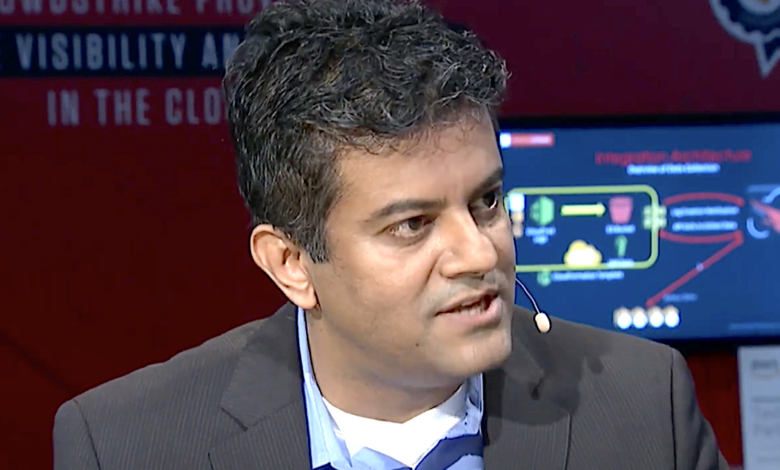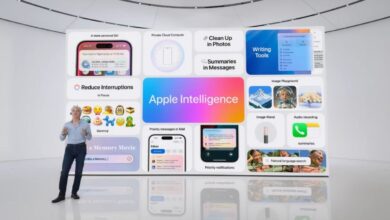New Amazon Bedrock offerings provide a new way to fast-track generative AI apps and experiences

Amazon Web Services Inc. Tuesday announced a slew of offerings on Amazon Bedrock, including a custom artificial intelligence model import capability, model evaluation, safeguards to remove personal and sensitive information, and additional model choices, with a goal to help customers speed up the rollout of generative AI.
Before the news, I received a prebriefing on the announcement from Vasi Philomin (pictured), vice president of generative AI at AWS, to get some more background on what AWS announced. He provided a deeper dive into the details beyond SiliconANGLE’s news story.
Custom model import
“Tens of thousands of customers are already using Bedrock as the foundation for their generative AI strategies because we give them the broadest selection of leading foundation models,” he told me. “But with this announcement, we’re empowering our customers to bring their own proprietary models to Bedrock.”
Amazon Bedrock custom model import enables organizations to use their tailored models onto the platform, streamlining operations and speeding up app development. AWS says customers are fine-tuning existing models for their specific needs, especially in healthcare and finance, using services like Amazon SageMaker.
That integration enables the use of Bedrock’s AI tools with custom models, eliminating the need for independent development. Through a straightforward process, organizations can import their models into Bedrock as fully managed APIs and take advantage of the platform’s scalability and protective features.
That flexibility enables users to combine Bedrock’s models with their own with a single API. Currently supporting Flan-T5, Llama and Mistral architectures, this feature is available in preview, with expansion plans.
Amazon Bedrock’s Model Evaluation
“It’s great that we have all the models — and now you can bring your own model as well — but then you want to be able to evaluate which one is doing best for your use cases,” Philomin said. “And then you can choose one or more of the models to power your application or user experience. That’s where the Model Evaluation capability is useful, and we are making it generally available.”
This feature enables customers to assess and compare models swiftly, aiding in selecting the most suitable one for their needs. With a vast array of top-tier models, Bedrock caters to various pricing, performance and capability preferences. In the past, organizations faced extensive analysis to match models with their specific requirements, which can delay the deployment of AI applications.
Model Evaluation streamlines this process, reducing evaluation time from weeks to hours. Customers can quickly start by choosing evaluation criteria and uploading datasets or leveraging built-in resources. For subjective assessments, Bedrock facilitates human input to evaluate model responses based on tailored metrics. Once set up, Bedrock conducts evaluations and provides a comprehensive report, aiding customers in swiftly identifying the optimal models for their use cases.
Guardrails for Amazon Bedrock
“The Guardrails for Bedrock is the only capability offered by any cloud provider that enables customers to build and customize privacy protections for their applications all in a single offering,” Philomin said. “Usually, it’s not a combination of safety and privacy protections—it’s one or the other. We’re bringing the two together.
AWS provides customers with a way to enforce safeguards and filter out personal data, profanity, specific terms and harmful content. Organizations must deploy it securely and responsibly to ensure the widespread adoption of gen AI across industries.
Although many models come with basic content controls, customers require further customization to ensure responses align with company standards and ethical AI principles. Guardrails for Amazon Bedrock promises to enhance safety measures beyond native model capabilities, blocking up to 85% of harmful content. It offers prebuilt and customizable safeguards within a single solution that are compatible with all large language models in Bedrock.
Setting up guardrails involves providing natural-language descriptions of restricted topics and configuring thresholds for filtering hate speech, insults and other undesirable content. This feature empowers customers to innovate confidently, maintaining a consistent user experience and upholding safety and privacy standards across generative AI applications.
Model choices
AWS is now offering Amazon Titan models exclusively on Bedrock, along with the latest models from Cohere and Meta. These models, pretrained by AWS on diverse datasets, prioritize responsible AI use.
Titan Text Embeddings V2, optimized for RAG tasks, offers improved accuracy and reduced compute and storage costs, making it ideal for various applications like chatbots and recommendations. In addition, Amazon Titan Image Generator, which is generally available, enables industries such as advertising and ecommerce to create or enhance images via natural language prompts, with added invisible watermarks for transparency and security.
AWS enables customers to step on the AI gas
AWS, like its Amazon mothership, doesn’t do things on a small scale, so it is taking that approach with gen AI. Everything is necessarily big, and AWS is one of the few providers that can attain the scale required for gen AI. It’s also among the few providers that can deliver on customer expectations for model choice, evaluation and guardrails. We are still in the early stages of the gen AI revolution, but AWS has already established itself as the go-to for customers looking for choice and an end-to-end solution.
Zeus Kerravala is a principal analyst at ZK Research, a division of Kerravala Consulting. He wrote this article for SiliconANGLE.
Photo: SiliconANGLE
Your vote of support is important to us and it helps us keep the content FREE.
One click below supports our mission to provide free, deep, and relevant content.
Join our community on YouTube
Join the community that includes more than 15,000 #CubeAlumni experts, including Amazon.com CEO Andy Jassy, Dell Technologies founder and CEO Michael Dell, Intel CEO Pat Gelsinger, and many more luminaries and experts.
THANK YOU



